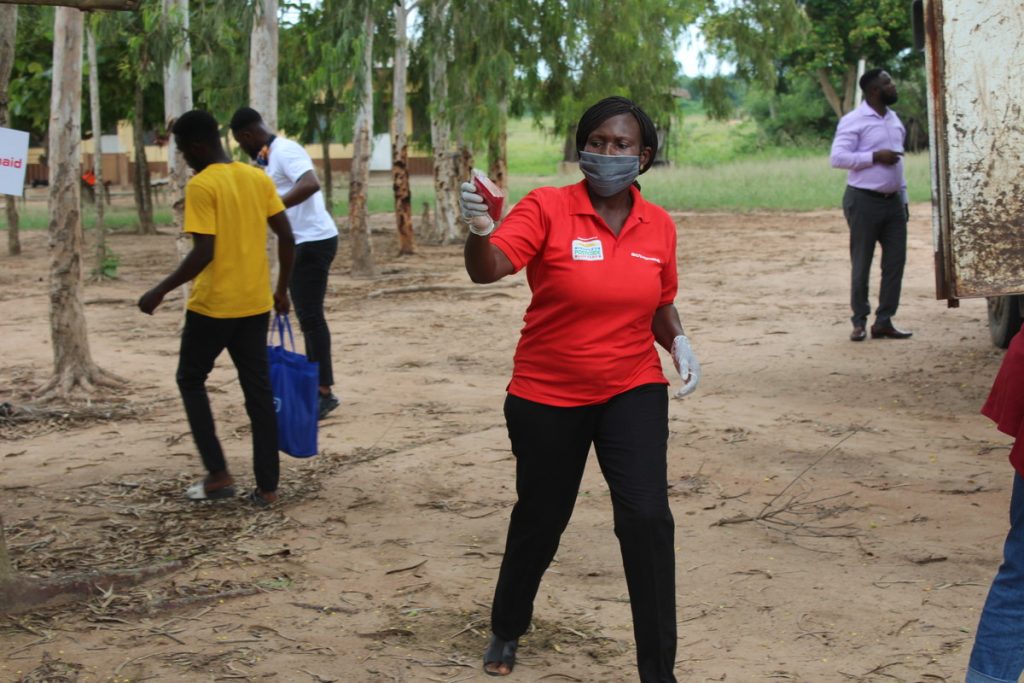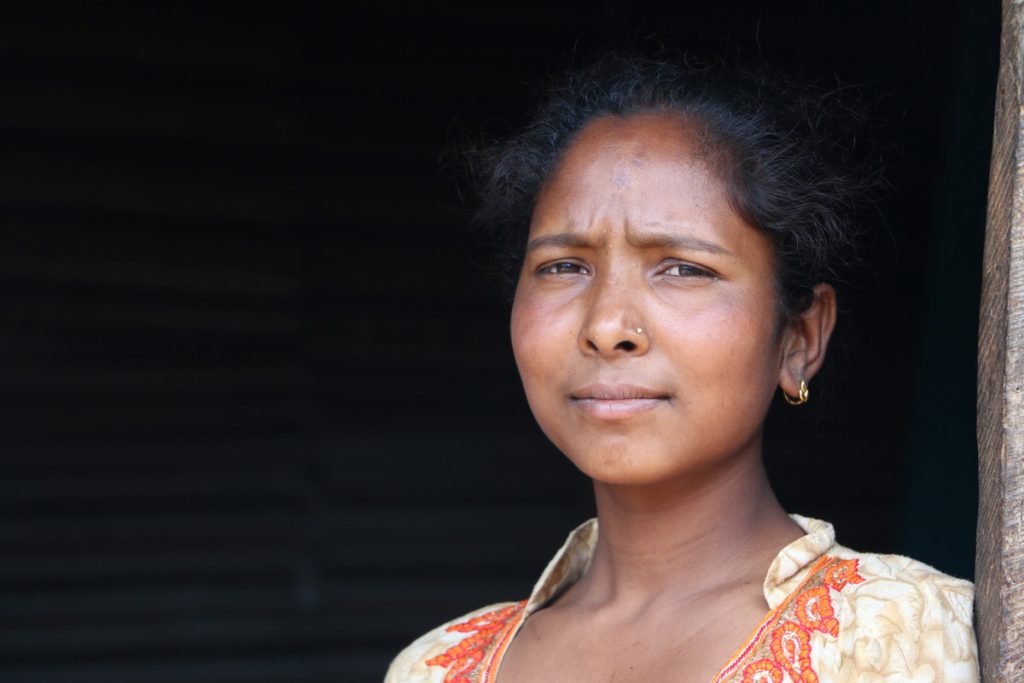By Roos Saalbrink, policy adviser on economic justice at ActionAid International and Niranjali Amerasinghe, executive director at ActionAid USA
The International Monetary Fund’s recently published Comprehensive Surveillance Review (CSR) fails to address the impact of its policy prescriptions on gender equality and women’s rights, the ability of governments to respond to the pandemic and fight inequality.
Through country-level surveillance, the IMF monitors a country’s fiscal policies, overall economic conditions and identifies key risks, which it classifies as posing present or future threats to global economic stability and gives advice for policy adjustments.
The surveillance review notes the need to change the IMF’s policy advice in light of climate change, digital technology and global events like the Covid-19 health and economic crisis.
But it doesn’t go anywhere near far enough in assessing how IMF policies enable governments to meet the UN sustainable development goals (SDGs), the Paris Climate Agreement and address gender inequality, all during the biggest economic decline since the 1930s.
Since 2013, the IMF has increased its work on inequality, gender and climate – so-called ‘macrostructural issues’ – but so far this is about paying lip-service rather than delivering substantive change.
For example, the CSR signals that the IMF now considers climate change more central to its mandate, but it does not address how its existing policy advice is limiting countries’ ability to adapt and transition to greener economies. Or consider the disproportionate impact of the climate crisis on women and girls in the Global South.
We urgently need to see substantive change in IMF practice. Civil society groups have already set out a framework for IMF engagement in country-level surveillance (article IV), on how the IMF can better respond to multiple crises: the global climate crisis, growing structural inequalities and the impacts of the global Covid 19 pandemic that all undermine the achievement of women’s rights.
We asked ActionAid’s policy experts across tax, climate and women’s rights to share their response to the CSR:

Gender-responsive public services
The last ‘decade of austerity’, popularised by the IMF’s economic advice, has led to underfunded health systems around the world that were thus ill-prepared for providing a comprehensive response to the global pandemic.
Yet the CSR fails to address the IMF’s pivotal role in giving unhealthy advice, for example, telling countries facing critical health worker shortages to cut public sector wages, meaning there are fewer doctors, nurses and frontline health workers in countries already desperately short of medical staff.
ActionAid’s 2020 report Who Cares for the Future: Finance Gender-responsive Public Services exposed the detrimental IMF loan conditions, coercive policy advice and austerity measures which have pushed 78% of low-income countries to plan for cuts or freezes in public sector wages over the past three years. This was a dangerous practice even before the Covid-19 pandemic and should be unthinkable now.
Yet there are surprisingly few references to health overall or the need to prioritize investing more in health or other public services following the Covid pandemic. Apart from considering SDG data where IMF data falls short, the main report acknowledges that the prospects of achieving the goals are weakened – but no action is proposed to respond to this, reinforcing the sense that the IMF is not equipped or ready to be part of the solution to these problems.
Climate
Although it is a significant step forward that the IMF now acknowledges the ‘macro-criticality’ of climate change – and the adaptation and ‘transition risks’ caused by shifting to a low-carbon economy, there is no meaningful analysis of the capacity of states to pay for a just transition or of the impact of the continuing fossil fuel dependency.
Instead, budget cuts are expected in 154 countries this year, meaning 85% of the global population will be living under austerity conditions in 2022. Civil society has called on the IMF to end harmful IMF-conditioned austerity for good.
ActionAid’s climate expert Teresa Anderson says:
“The CSR fails to recognize that the economic policy advice the IMF doles out to countries continues to undermine their capacity to address climate change, support a just transition or consider the needs of the most marginalized. Austerity, regressive taxation and reducing worker protections, end up tying countries’ hands and leaving them without the tools they need to address the climate crisis.”
Taxation
The current global economic system makes two key things invisible: firstly, the planetary boundaries and natural resource limits, and secondly the unpaid and underpaid domestic and care work of women around the world. Investments in gender-responsive quality public services are key for redistributing unpaid care work and for addressing gender inequalities.
The pandemic has indeed induced a ‘shecession’, as the IMF kindly points out, but to address this requires expanding fiscal space, not contracting it. Yet fiscal consolidation (or austerity) remains the norm for the IMF and alternatives are largely ignored. The most obvious alternative would be prioritizing ambitious and progressive expansion of tax revenues to finance gender-responsive public services and social protection. But this CSR is largely silent on this pivotal issue.
Anders Dahlbeck, ActionAid’s tax expert says:
“Progressive taxation is critical in providing an ‘enabling macroeconomic environment’ to turn around the rollback on women’s rights, address gender and economic inequality and combat climate change.
“By fighting tax avoidance, ensuring that those more able to pay tax also pay more through effective property and capital gains taxation and reforms to ensure that companies operating in the digital economy pay their fair share of tax, billions of US dollars could be raised globally to invest in a recovery which promotes equality and women’s rights. But the CSR has almost completely neglected the potential of progressive taxation.”
Gender inequality
This CSR fails to build on the IMF’s 2018 admission that its country teams should consider whether their own policy advice could exacerbate gender inequality.
ActionAid, alongside women’s rights organizations, has stressed the austerity-focused structural adjustment policies endorsed by the IMF not only exacerbate poverty and inequality, but also continue to increase women and girls’ unpaid care burdens. Fiscal consolidation, regressive taxation and labor flexibilization (the IMF’s term for reducing worker protections), are gender issues that exacerbate the feminization of poverty and this review is a missed opportunity for the IMF to address this.
ActionAid’s women’s rights expert, Wangari Kinoti adds:
“Last August we surveyed young women in 22 urban settlements in India, Ghana, Kenya and South Africa. The vast majority said that their household work was increasing while they were facing significant barriers in accessing public services.
“More than half of the young women had not received any form of social protection or government benefits despite food price increases coupled with income reductions and losses due to ongoing social and economic crises exacerbated by the pandemic.
“There were also widespread reports of increased exposure to gender-based violence. Women continue to be at the receiving end of the privatisation of public services and the deregulation of labour. This can only be reversed by placing care at the centre of economies, resisting privatisation, maximising public finance to invest in the care economy, valuing all paid and unpaid labour and ensuring decent work.”
Charting a different course
As civil society pointed out during this review, the IMF must develop systematic and robust impact assessments that measure how its conventional macroeconomic policy advice in surveillance impacts economic and gender inequality, as well as the environment and climate change.
The assessments’ outcomes should inform and adjust conventional IMF policy advice. At an absolute minimum, the IMF has an obligation to ‘do no harm’ and take steps to avoid exacerbating inequalities and the climate crisis in its surveillance work.
The IMF should have used the CSR to chart a different course in the light of the Covid-19 pandemic and the climate crisis. They could have acknowledged their problematic past contributions and adjusted their operations so that development, environmental and gender goals were placed front and center for the future – rather than being afterthoughts.
Rhetoric and statements are not the same as substance and practice. We urgently need to see change in IMF practice. Women’s rights organizations and the voices of marginalized groups impacted by climate change and an unfair economy should be central and the IMF should listen and respond to civil society recommendations.
What happens during the next phase of how to implement this review into surveillance policy advice will reveal if the IMF has any other tools than austerity.

